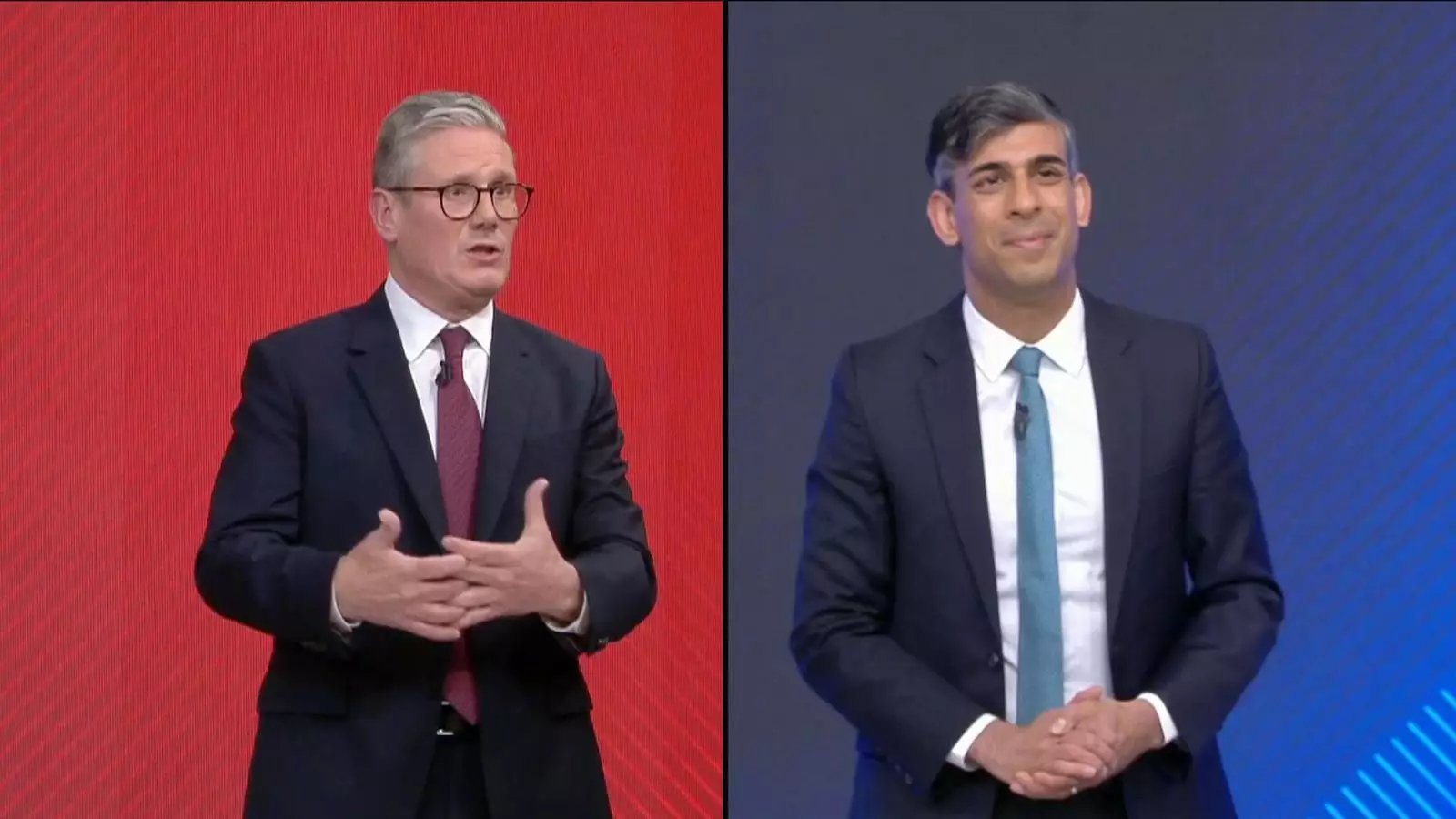The Battle for Number 10 event, which aired on Sky News, showcased a stark contrast in the performances of Labour leader Keir Starmer and Chancellor Rishi Sunak. The audience reaction, the result of a snap poll, and the overall demeanor of the two leaders painted a clear picture of who had a more challenging time during the event. It was evident that the scrutiny put on the leaders was rigorous, with questions coming from a 100-strong Grimsby audience and a detailed interview with political editor Beth Rigby.
Throughout the event, Keir Starmer maintained a calculated approach, giving away as little information as possible. He stuck to a scripted narrative on tax policies, hinting at potential post-election tax rises without explicitly stating them. This cautious strategy is indicative of a safety-first campaign that avoids taking unnecessary risks. However, Starmer’s reluctance to disclose concrete plans raised skepticism among viewers about the transparency of his intentions.
On the other hand, Rishi Sunak faced numerous challenges during the Battle for Number 10. The Chancellor’s performance was marred by difficulties in explaining his own record and defending his policy decisions. When pressed on his pledges to reduce debt and address key issues like rising waiting lists, Sunak faltered and appeared defensive. His attempts to shift blame onto others, such as junior doctors, were met with skepticism and disapproval from the audience.
Despite the high stakes for Sunak, who needed a transformative victory to boost his campaign, the Chancellor failed to deliver a convincing performance. His responses to critical questions lacked clarity and conviction, leaving the audience questioning his credibility. Sunak’s inability to address concerns about immigration, healthcare, and election timing further eroded his standing among viewers.
The polling results following the Battle for Number 10 reflected a clear preference for Keir Starmer over Rishi Sunak. A majority of viewers, by a margin of 64 to 36, believed that Starmer outperformed Sunak during the event. Even one-third of former Tory voters who supported Boris Johnson in the 2019 election expressed a favorable opinion of the Labour leader’s performance. This outcome underscored the missed opportunity for Sunak to make a lasting impression on voters.
The Battle for Number 10 served as a critical juncture in the general election campaign, highlighting the contrasting leadership styles of Keir Starmer and Rishi Sunak. While Starmer exhibited caution and composure in his responses, Sunak struggled to defend his record and policies effectively. The event raised questions about the readiness of both leaders to address the pressing issues facing the country. As the campaign progresses, it remains to be seen whether Sunak can capitalize on future opportunities to regain momentum and win over skeptical voters.



Leave a Reply